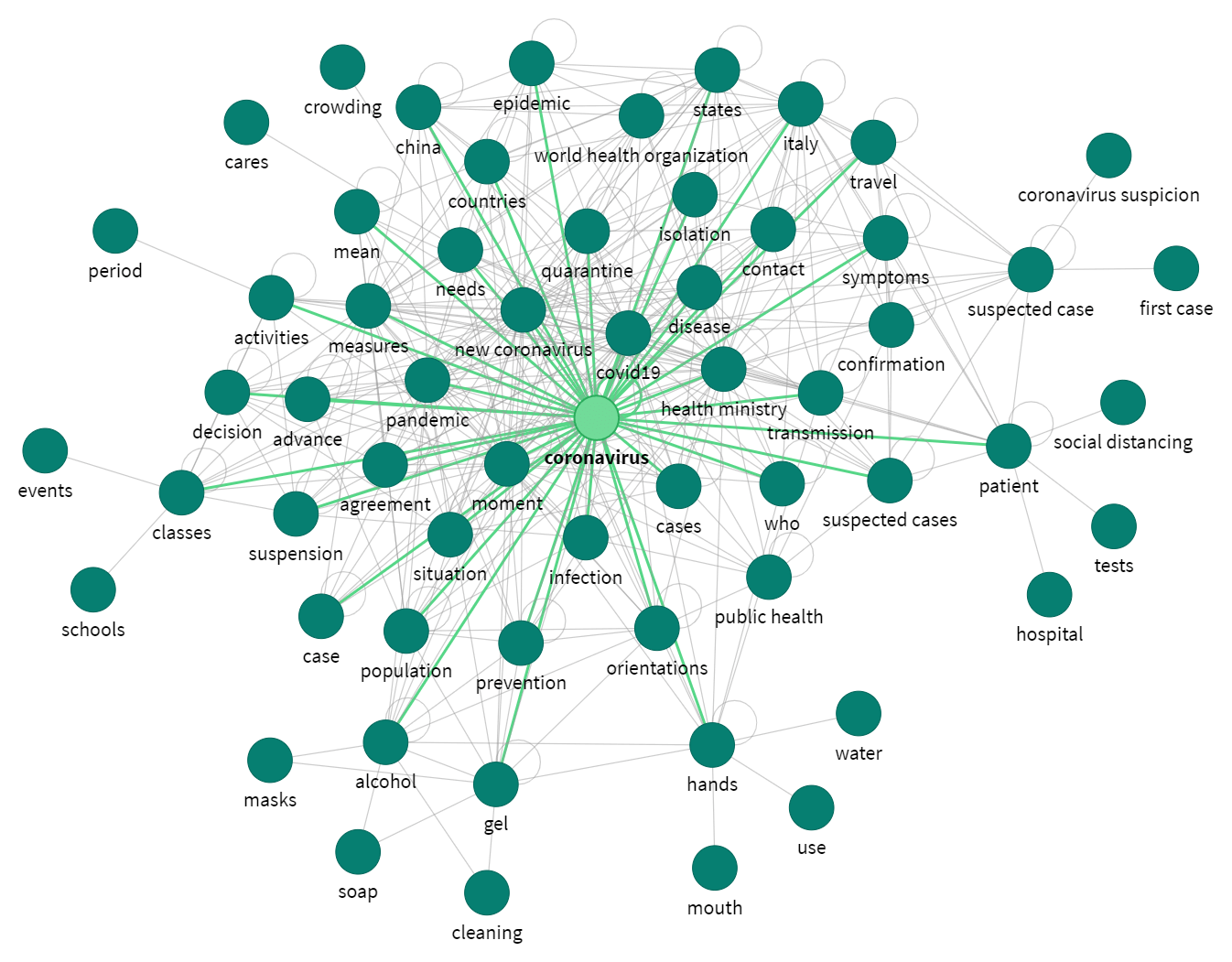This post is part of the series Coronavirus.
If we knew in advance that a crisis of this magnitude would come, and what impacts would bring, would we act in the same way?
The pandemic established by COVID-19, better know as coronavirus, has frightened the population from all corners of the world, forcing us to live in quarantine, away from our family, friends and our daily lives. This whirlwind of information and data exposed every day makes people often feel disoriented and exposed to a degree of uncertainty that we are not used to.
As a light at the end of this, apparently long tunnel, is information technology, especially that based on Artificial Intelligence, which has a huge potential in the early detection of epidemiological risks, in understating people’s manifestations on the internet, in qualifying the flow of information about diseases, and finally, in the search for a cure, thus reducing the negative impact of the life in society.
We are now at the peak of this crisis, but did you know that the first alerts were issued by the start-up BlueDot, which through the use of Artificial Intelligence, managed to predict, from its monitoring in December 2019, a potential risk of this pandemic we are living today?
The case of BlueDot, famous for detecting the risk of coronavirus long before many medical models and official monitoring institutions, is the key for understanding the potential that Artificial Intelligence technology has to act on this type of event, starting with the detection itself.
Every day, countless amounts of data are produced and published on the internet, including health data. Monitoring these data, respecting patients’ privacy, using techniques of Natural Language Processing (NLP), allows the detection of anomalous movements of words and topics that until then had a standard behaviour.
These data, in addition to the analysis of other information, like the flow of people around the world, allow a problem that at first sight seems insignificant to have its potential calculated weeks before the risk actually occurs, allowing at least a preparation for the more pessimistic scenario, even if it may never happen.
And when it happens, we are at a stage of trying to understand and assess people’s individual risks. The circulation of poor-quality information – and often fake – creates a panic effect that is, in most cases, inconsistent with the real risk of the disease detected. This panic, boosted by the free circulation of this information on social networks, changes people’s behaviour, which can cause an overload on the healthcare system, lack of stock of basic products in the supermarkets, and fall in financial markets, putting public health at risk and compromising the entire global economy.
In this sense, technologies based on monitoring public social manifestations on the internet, like Daoura Insights, from Daoura, use the power of Artificial Intelligence to analyse these social dynamics in debates about certain topic, and identify patterns, doubts and misinformation that only lead to a vicious behaviour. This constant detection, before and throughout the crisis, allows decision makers, public and private, to quickly act to contain disinformation and correctly orientate the population about the moment they are living. Proper communication at this time is essential to reduce the impact of the crisis.

With this same monitoring, is possible to also understand the sentiment and emotion of people, from their own public manifestations on the internet about the topic – that in these moments are intensified – for a specific and primordial purpose: act, either to calm down people when fear is a common word; either to rectify information, when a spreading of fake news is detected; either to orientate and disseminate knowledge, when doubts are detected about the moment we are living.

Therefore, if we knew in advance that a crisis of this magnitude would come, and what impacts would bring, would we act in the same way we are acting today? Maybe not. However, prior information, risk models, sentiment analysis, social information and any other insight, don't matter if we don’t know how to interpret them and, mainly, how to act on them.
The technology is there, more advanced and precise every day, to help us in these specific tasks. But it does not save the nation. We have two choices: ignore or act. We are realizing that acting, guided by qualified information and with rationality, certainly allows us to reduce the impacts of a crisis and prevent them from bringing even more uncertainty to our life in society.
Read other posts from the series Coronavirus.
